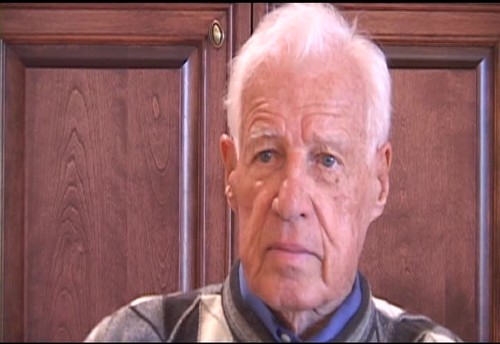Advanced Search
-
Harris, Whitney Nuremberg Research

A collective document center was established by Whiney Harris and his colleagues in the Nuremberg Palace of Justice.
-
Harris, Whitney Proof of Culpability

Asked if any of the Nuremberg defendants showed any remorse, Whitney Harris said that in his opinion, the only one who showed any real reflection o
-
Harris, Whitney Testimony on Auschwitz

In all of the investigations, Whitney Harris said, survivors of the concentration camp at Auschwitz came forward with harrowing tales of their expe
-
Harris, Whitney Truth Through Judicial Process

Asked to comment on other post World War 2 trails and tribunals, Whitney Harris brought up the war crimes trial held in Tokyo [Annotator's Not
-
Harris, Whitney Upholding the Outcome

Every trial draws criticism, according to Whitney Harris, but he knows of no significant criticisms of the conduct of the Nuremberg trails as it un
-
Harrison, Charles A Grateful Survivor

Charles Harrison said the war was over just in time, because none of the prisoners of war he was among could have lived through the combination of
-
Harrison, Charles Assault of 11 December 1941

On 11 December 1941, Charles Harrison was at Toki Point, which had a panoramic view, and could see five ships approaching Peale Island.
-
Harrison, Charles China Prison Camp Odyssey

According to Charles Harrison the prisoners maintained discipline in the prison camps under good leadership.
-
Harrison, Charles Decisive Japanese Offensive on Wake Island

The Japanese continued strafing and bombing, and Charles Harrison said the Marines were on the alert for another invasion attempt.
-
Harrison, Charles Deployed to Wake Island and First Attacks by the Japanese

When he arrived on Wake Island [Annotator's Note: with the US Marine Corps' 1st Defense Battalion] in August 1941, Charles Harrison said
-
Harrison, Charles Early Life and Enlistment

Charles Harrison was born in March 1921 and raised near Tulsa, Oklahoma.
-
Harrison, Charles Japanese Attack on Peale Island

Charles Harrison was having breakfast in the mess hall on Peale Island when he heard a runner from the detachment shout the news that Pearl Harbor

